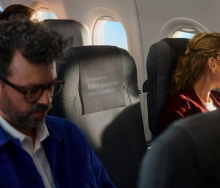Iata has responded to the massive outcry from the global agent community regarding airlines’ refund policies for passengers affected by the COVID-19 pandemic.
Director general and ceo of Iata, Alexandre de Juniac, addressed the travel agent community in an open letter where he acknowledged the COVID-19 pandemic had brought the travel industry to a standstill, saying there was no precedent for what airlines and their travel agent partners were experiencing.
He said Iata was challenged with the enormous responsibility of maintaining the security and integrity of its financial settlement systems during a period when far more cash was exiting than coming in. He added that its members were also relying on Iata to recognise the extraordinary challenges they were facing and to show as much flexibility as possible.
“For travel agents, this means we are allowing settlements to be made a bit later, without penalties. While remittance periods have been kept in accordance with BSP calendars, we are taking a flexible approach despite the stresses on the system. We are also allowing agents to continue selling – using secure methods – even when they are late with remittances. Additionally we are offering to extend deadlines for submission of audited financial statements by up to a month,” said Alexandre.
On the matter of airlines withholding ticket refunds in the BSP, or issuing vouchers in lieu of refunds, he advised that it was practically impossible for airlines to find sufficient financial means to keep the air travel value chain operating in the short time that airlines had before facing bankruptcy – estimating the industry’s liability in terms of its refund bill to be in the region of US$35bn (R623,80bn).
“In this context, we believe the best answer for both airlines and travel agents is for regulators to ease requirements for cash refunds and allow airlines to issue vouchers instead. This will remove the pressure that is currently on agents to issue cash refunds at a time when airlines are making decisions based on their own need to preserve cash. Iata is willing to engage with the travel agency community represented in the Passenger Agency Programme Global Joint Council to formulate a structure for these vouchers that will bring value for airlines, travel agents and consumers,” said Alexandre.
Ceo of Asata, Otto de Vries, said Asata would prefer to reserve comment on the correspondence until after the association had completed its consultation with its colleagues from the World Travel Agents Associations Alliance.
In relation to Alexandre’s comments about allowing agents to make remittance settlements “a bit later”, Otto said it was his understanding that Iata was now allowing consideration to be given to delays in BSP remittance payments, on a case-by-case basis, with the average extensions allowed being around three days.















